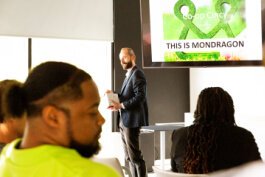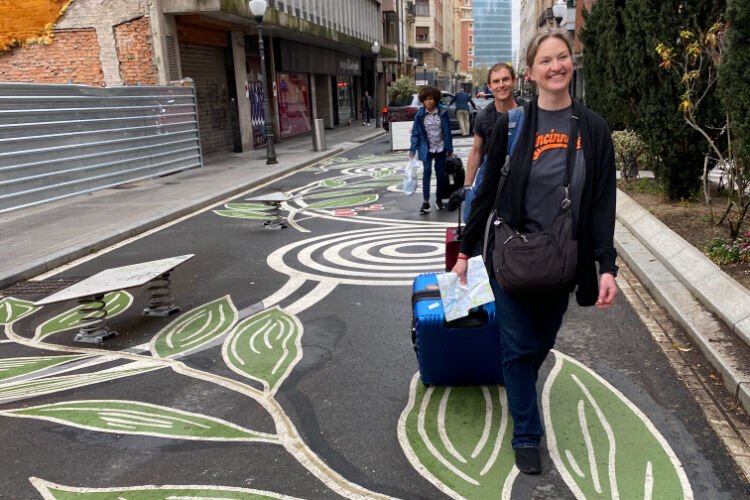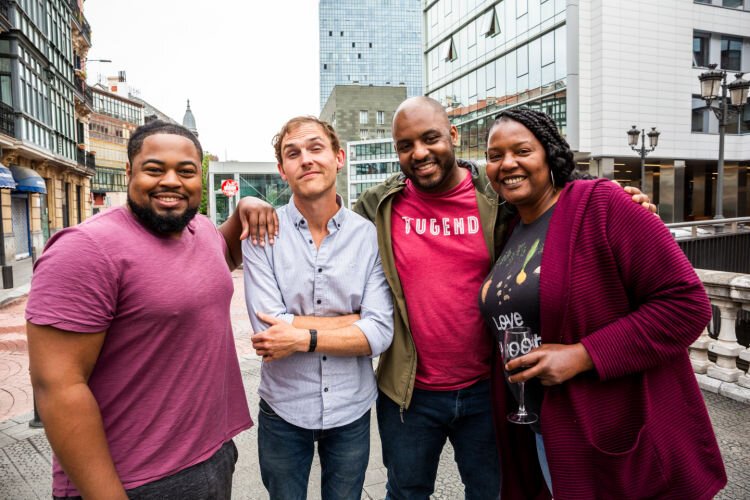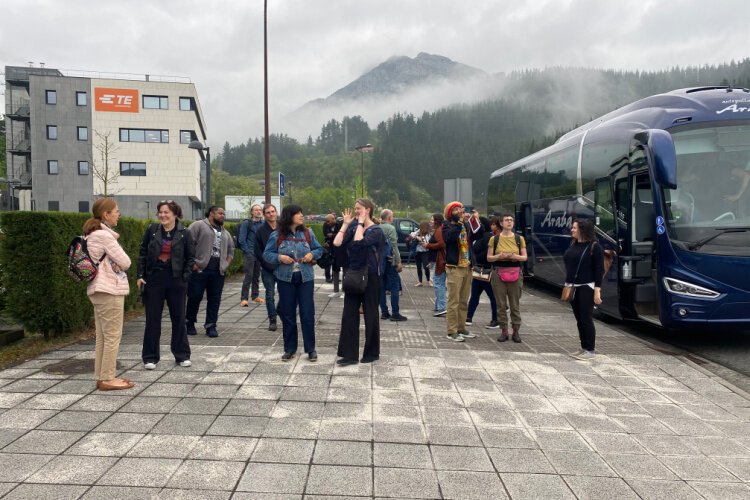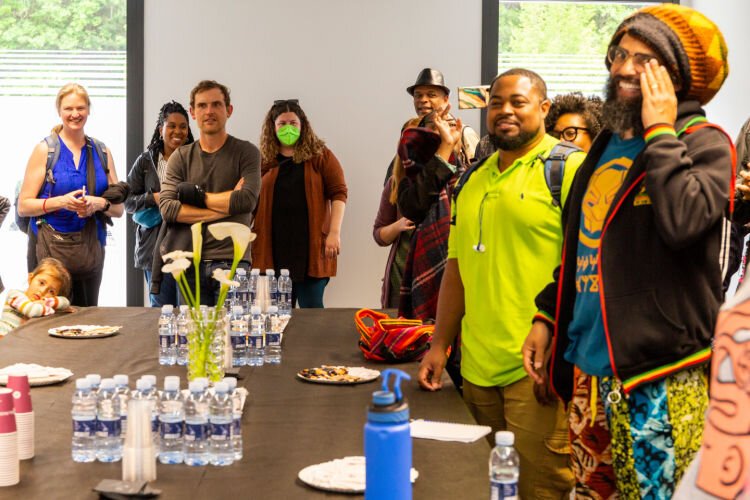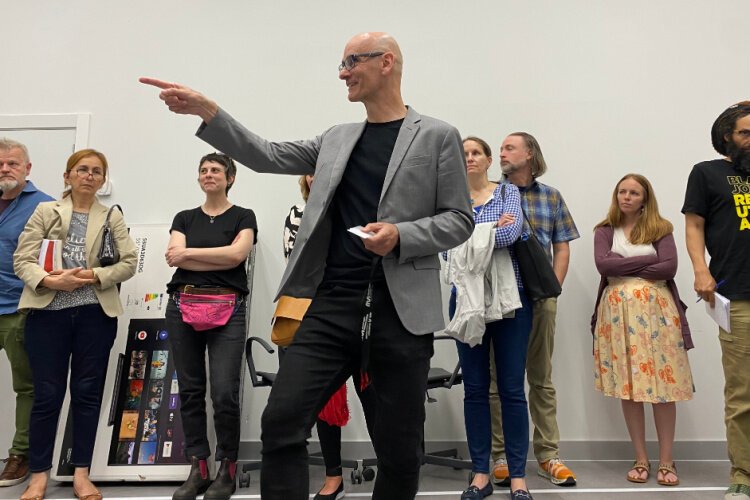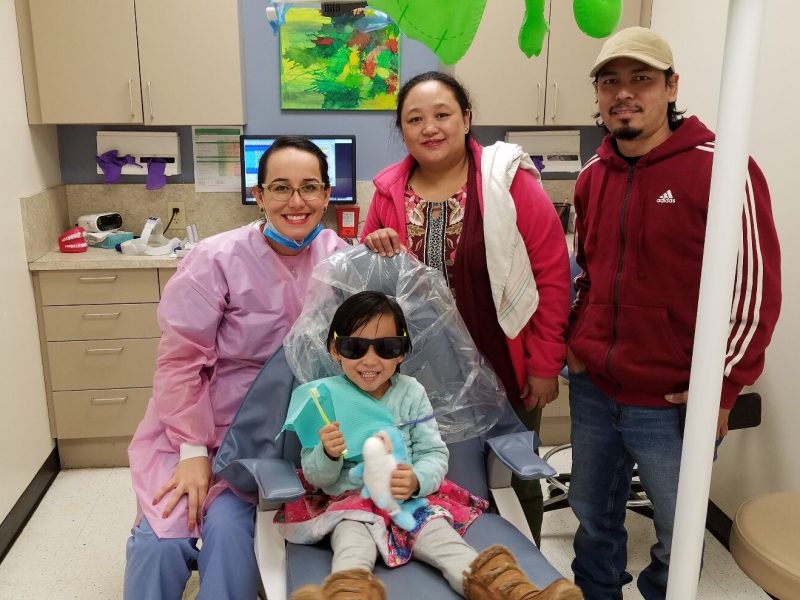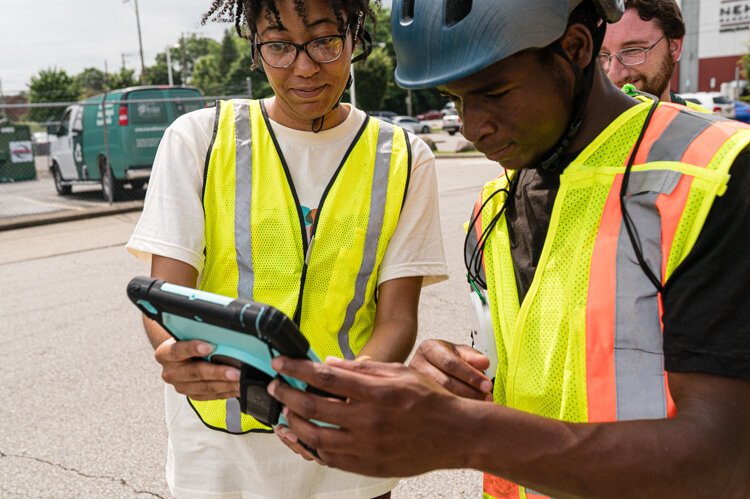The delegation from Cincinnati and Dayton came back with clear next steps on how they want to bring work-ownership to the next level in southwest Ohio.
Founded in 2011, Co-op Cincy is a local, Greater Cincinnati organization whose mission is to “nurture a resilient, interconnected network of worker-owned businesses in Greater Cincinnati.” Since their incorporation, the organization has loaned more than $1 million to co-op businesses and employees. In addition, the organization has trained over 1,300 individuals about worker ownership. Currently there are a total of sixteen businesses in their cooperative network.
What has inspired their mission throughout the years is the Mondragon Corporation, an association of cooperatives that has transformed the Basque region of Spain by reducing inequality and poverty. Going strong since 1956, Mondragon’s network of cooperatives has been an engine for economic growth in Spain’s Basque region’s lowest levels of poverty providing a path for economic equality.
In 2022, in an article published by the New Yorker Magazine, the Mondragon Corporation was quoted as being “the world’s largest co-op”.
Today Mondragon Corporation employs 70,000 people in an association of eighty cooperatives, which range from a grocery chain to engineering and logistics firms. It’s the tenth largest corporation in Spain, with sales in 150 countries.
Just last month, Co-op Cincy was able to tour the association in Spain with a diverse delegation that included business, philanthropic, and faith leaders plus worker-owners from Co-op Cincy’s network of cooperatives; and representatives from Co-op Cincy’s sister organization in Dayton, Co-op Dayton.
Among the participants are:
- Barbara Bell, district director for Congressman Greg Landsman
- Jeanne Golliher, retired president and CEO of the Cincinnati Development Fund
- Pastor Damon Lynch III of the New Prospect Baptist Church
- Bill Tucker, former executive director of Flywheel Social Enterprise Hub
- Robert Killins Jr., director of special initiatives at the Greater Cincinnati Foundation
- Denisha Porter, director of All-in-Cincinnati
- George Molinsky, partner at Taft Stettinius & Hollister LLP
- Tim Rettig, founder & CEO of IntrustIT
Soapbox Cincinnati was able to speak with Co-op Cincy’s co-director and co-founder, Ellen Vera, who accompanied the group to Spain.
Tell us a little about your trip to Mondragon.
We just recently got back from our delegation to Mondragon, one of the most successful groups of worker-owned businesses in the world. We took forty people from Southwest Ohio; from the philanthropic sector, the civic sector, the business sector, from government and community. These are the people who we have been working with to lay the groundwork for a thriving economy here in Cincinnati asking ourselves, “Where do we really want to go with this?”

Mondragon has always been our North Star; we have always had really deep connections with them since the beginning and they have been able to tangibly turn the dial on inequality. They have one of the lowest rates of poverty and unemployment because they have been able to create a really resilient regional economy through this business model in their region.
And so, we traveled to Spain to really get an understanding of all of their experiences, understand what’s possible and to give people a clear vision of where this could go. We were able to come back with some clear next steps on how we want to bring work-ownership to the next level here in the Greater Cincinnati area.
What were the organization’s biggest takeaways from the trip?
One of the biggest takeaways that we’d like to bring back to the Greater Cincinnati region is the governance model that helps to perpetuate this cooperative network success. While we were there, we saw examples of high-tech manufacturing cooperative businesses that manufacture motor parts and precision tools. In addition, we were able to see a cooperative model that has produced the second largest bank in the region, and one of the largest grocery store chains in Spain.
We went to really understand what is possible and to bring back to the Cincinnati region a real clear vision of where this type of model could go and to bring back a concise worker owned economy model that could be accepted and be reproduced here. But it’s really the governance model that ties it all together. That’s the true power. And this is something that we can do, we just need to be intentional about putting people over profit.
What are your next steps?
Our next steps include over twenty-seven action items that our group plans to do. But mainly, we plan to move forward and to spread this message of change through cooperative economic development. More specifically, we plan to share our learning with the community. We plan to present our findings to Cincinnati City Council at the end of the month to raise awareness about co-ops and its structure.
In addition, we plan to begin a study group and have established steps to deepen the relationships of the seven worker groups that traveled to Spain.
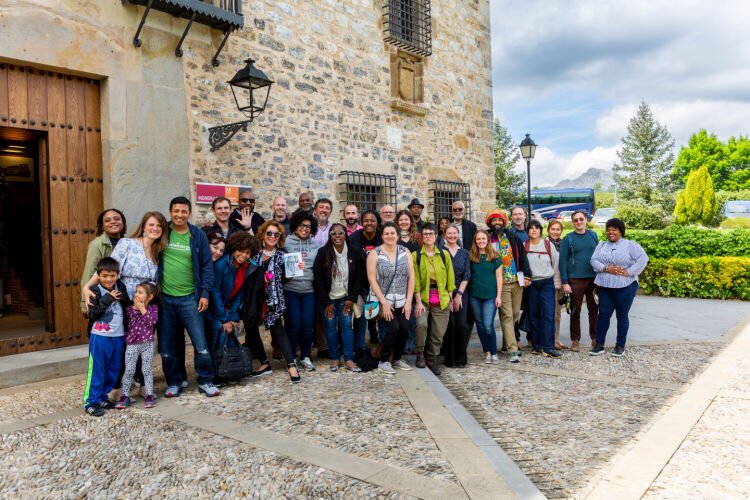
Lastly, we plan to give presentations throughout the region letting people know about the cooperative model, specifically talking about how we witnessed how it can work and how they can implement it in their own community.
All pictures in this story are from the Co-op Cincy Staff or Glenna Jennings.

